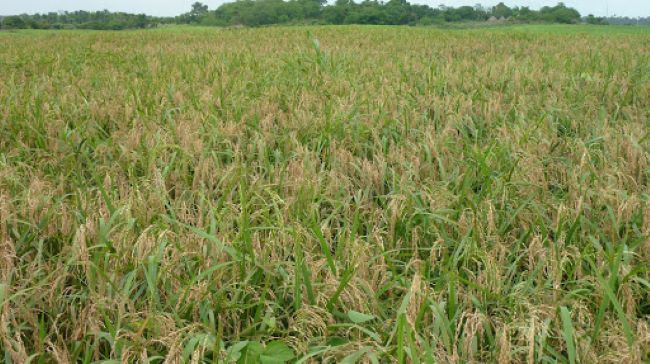Rice is a staple in Nigeria, and the country consumes almost 7 million tonnes of it a year.
That’s a lot of rice, and in order to keep up with demand, the country has imported huge amounts of the grain.
However, Nigeria is also dreaming. One of the dreams is meeting home demand and stopping the forex expended on rice importation. The other dream is sharing in the wealth from rice by producing excess and exporting same to other rice-deficient countries.
The export promotion policy of the government is desirable, and a right step in the right direction, stakeholders have clearly said. Benefits include economic diversification, production intensification, higher productivity and multiplier effects on the economy. The multiplier effects are employment generation along the value chain, more economic empowerment for primary producers, and forex earnings for the government.
However, the preparedness and feasibility of Nigeria to achieve self-sufficiency in rice production and exporting the staple food to other countries by 2022 as declared by the Minister of Agriculture, Mr Sabo Nanono, has been questioned by many, describing such a plan as a mere political statement.
Africa Rice Centre, Ibadan, OYO State, expressed doubt over the feasibility of the plan due to insecurity of farmers, COVID-19 outbreaks and poor investments in farm infrastructure.
But the undaunted minister is of the opinion that if the current tempo is sustained, the country is actually on the right track to achieve the goal regardless of limitations affecting rice production in the country.
According to him, farmers face a lot of challenges and some of them are natural factors such as climate change, weeds, pests and diseases and these alone are not unique to Nigerian farmers. But, he added, the major problem is inadequate infrastructure like irrigation facilities, and good planting materials to mitigate these realities.
Why investment in rice farming?
Also the Managing Director of a private firm, Dr Abiso Kabir, emphasized on the need for more investments to boost rice production capacity in the country.
According to him, “If Nigeria can cultivate 30 million hectares of rice in a year, and with the average five tonnes per hectare, you have 150 million tonnes of paddies if you add up such amount and discount those at about 50 per cent, you are going to be having 75 million tonnes of rice. The point is that we have the capacity of being food-sufficient.”
He added that Nigeria needs to invest heavily in the procurement and deployment of more farm machinery across the country for adequate land preparation that could make farming attractive and interesting for the youths.On food security, he said Nigeria could be self-sufficient within the next within three years if all resources were put in place.
While lamenting the security situation in the country, especially in rice producing regions, Dr Kabir called for an urgent collaboration between the affected states, the Federal Government and all relevant stakeholders so as to end the scourge. Boko Haram militants, drought and pests have combined to wreak havoc on farmlands in Borno State, leading to low farming activities, poor output and huge losses to farmers.
On the challenges militating against rice production in the country, a farmer based in Nasarawa State, Nurudeen Ali, said that the country must also fight against the external forces that were militating against its local farmers and producers.
While reiterating the need for investments in machineries, infrastructure, agro-processing, research and in every sector of the economy that is capable of supporting a massive revolution in agriculture, he said, “We have made progress but we are not there yet. We have the potential and the capacity to become food-sufficient within the next decade. About 84 million arable hectares of farmland is not a joke.
“If you utilize 50 per cent of the arable farmland, you will provide enough for your people, then you begin to preach free trade, why, because as we speak, Nigeria is producing 10 tonnes of finished rice every month, then we will now begin to embrace free trade in rice, we will now say, when it comes to the rice industry, Nigeria wants to become a liberal economy.”








